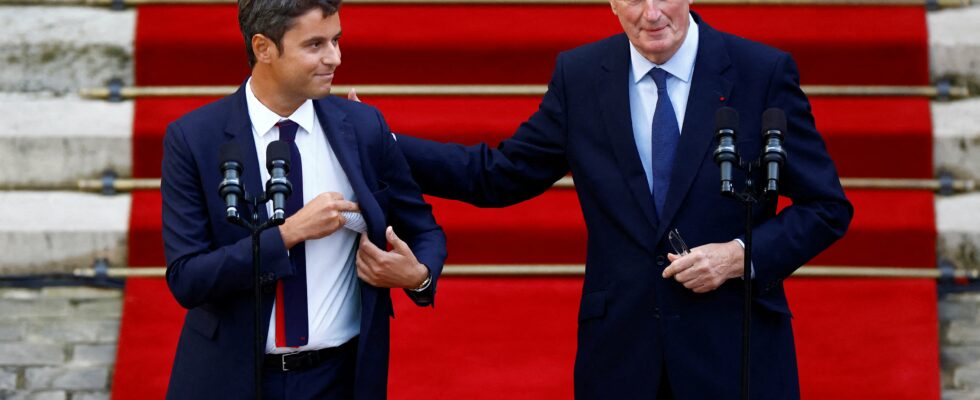It was about time, he believes daily The Country : while “general patience was beginning to wear thin”, Prime Minister Michel Barnier “felt the pressure to form a government”, commented the Spanish media on Thursday, September 19.
Two weeks after his appointment, Michel Barnier confirmed last night the imminent presentation of the list of his 38 ministers “before Sunday”, after long negotiations between the central bloc and his own political family, Les Républicains. From the point of view of the foreign media, this fragile government risks not lasting long in the face of the economic and political challenges that await it.
The government “most right-wing since 2017”
Outside France’s borders, the emphasis is on the fragile balance represented by this agreement “between the parties of the right and the centre, which represent around 230 deputies out of 577”, according to the Swiss newspaper The Time. Specifying the “minority” nature of this alliance, the British daily newspaper The Times also notes the place occupied by conservative elected officials: “In practice, this government seems to be the most right-wing since Macron came to power in 2017”, indicates the English newspaper, which underlines the probable nomination of Bruno Retailleau, “a senator from the hard line of the Republicans”.
The possible arrival of the senator from Vendée at the Ministry of the Interior is also noted by the website of the channel Canadian television BNN Bloomberg : “The 63-year-old has been a vocal critic of Macron’s previous governments, demanding more fiscal discipline and taking a more conservative stance on social issues, including voting against enshrining abortion rights in the French constitution.”
A “lame duck” isolated at the Elysée
A compromise and negotiations of ministries obtained at the end of a real “battle of the bosses” between the bosses of the right and the center, comments the Swiss daily Viewin reference to the Asterix comic book. The tabloid is amused by the “spectacle” given by the figures of French politics in recent weeks, “far removed from the political habits of France, a country usually so presidential, where everything depends on the Élysée Palace.”
The announcement of Michel Barnier’s next government thus constitutes the new act of a play between “tragedy” and “comedy” for the Swiss media, with Emmanuel Macron as a secondary actor. Describing the latter as a “lame duck”, View believes that he “is today even more isolated in his Élysée Palace, where his entourage refuses to talk about cohabitation with his new Prime Minister”. “The term used is ‘demanding cooperation’. What does that mean? Basically, that the head of state will do everything to continue to pull the final strings”, adds the newspaper.
The financial challenge highlighted
For the Swiss tabloid, however, the spectacle risks turning into a “financial tragedy”: “Michel Barnier and his government can say whatever they want. Only one subject will dominate and dictate government action in the coming months in France: the alarming state of public finances.”
The observation is shared by the European editorial staff of the American media Politico. The online media outlet highlights the economic challenge of the next Barnier government, particularly with its European allies: while the new government “must submit a budget for 2025 to the National Assembly in the coming days in order to meet tight parliamentary deadlines”, it will also have to “at the same time convince the European Commission that it has a credible debt reduction plan to reduce France’s worrying deficit”, analyses Politico Europe.
Executive ‘on death row’
Beyond the economic threat, foreign media are mainly talking about the fragility of the alliance between the centre and the right in an Assembly divided into three blocs. “It is not certain that Barnier and the new government will remain in power for long. Whether by the left or the right, a motion of censure could soon threaten the government,” notes the german weekly The Time.
The Spanish daily The Country is more radical, judging that “this executive will be born on death row. In addition to not representing the true plurality of the National Assembly, in which the left bloc has more deputies than any other, it will almost certainly be subject to a motion of censure. No one doubts that the government will fall and that the Assembly will have to be dissolved again within a year, the minimum allowed by law after an election.” For the Hispanic media, the fate of the Barnier government “is in the hands of the New Popular Front […] and Marine Le Pen’s National Rally. The only question is when they will want to overthrow him.”
